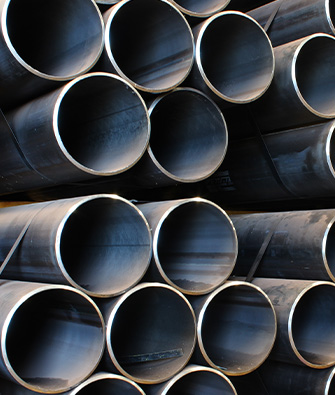Flanges are integral components in piping systems, serving as connection points between pipes, valves, and other equipment. The choice of material for flanges is important, as it affects performance, durability, and compatibility with various fluids. Here, we explore the different materials commonly used by a flanges supplier in UAE in flange manufacturing and their respective benefits.
Carbon steel:
Carbon steel is one of the most widely used materials for flanges due to its strength and cost-effectiveness. It is particularly suitable for applications involving moderate temperatures and pressures. Carbon steel flanges can be treated with coatings or finishes to improve corrosion resistance, making them versatile for various environments, including water, oil, and gas. However, they are less effective in highly corrosive environments, necessitating careful selection based on the intended application.
Stainless steel:
Stainless steel flanges are renowned for their corrosion resistance, making them ideal for applications in chemical processing, food and beverage, and marine industries. This material contains chromium, which forms a protective oxide layer that prevents rust and corrosion. Stainless steel flanges come in several grades, with 304 and 316 being the most common. Grade 316, in particular, offers superior resistance to chlorides and acids, making it suitable for more aggressive environments.
Alloy steel:
Alloy steel flanges are designed to withstand high temperatures and pressures, making them suitable for demanding applications such as power plants and oil refineries. These flanges are made from carbon steel combined with other elements, such as chromium, molybdenum, and nickel, which improve their strength and durability. Alloy steel flanges offer excellent performance in extreme conditions, but their cost can be higher than that of carbon or stainless steel options.
PVC and CPVC:
For applications in the plumbing and chemical industries, PVC (Polyvinyl Chloride) and CPVC (Chlorinated Polyvinyl Chloride) flanges are popular choices. These thermoplastic materials are lightweight, resistant to corrosion, and easy to install. PVC flanges are typically used for cold water applications, while CPVC flanges can handle higher temperatures, making them suitable for hot water systems. However, their mechanical strength is lower compared to metal flanges, so they are suited for specific environments.
Ductile iron:
Ductile iron flanges are known for their exceptional strength and toughness, making them suitable for heavy-duty applications in wastewater management and industrial settings. The material’s ductility allows it to withstand significant stress without breaking. Ductile iron flanges can be coated for corrosion resistance, extending their service life in harsh environments.
